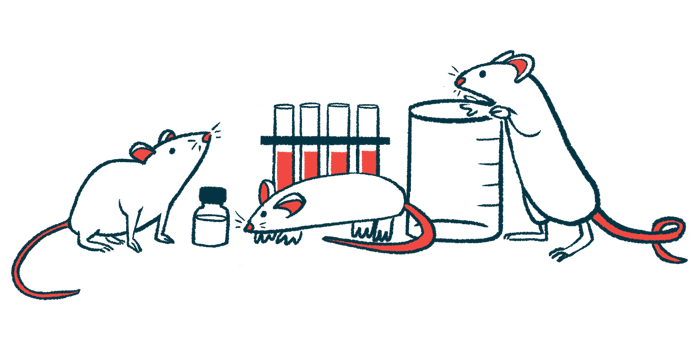Cold Eases Inflammation, Disease Severity in MS Mouse Model

Colder ambient temperatures may ease the inflammation that drives multiple sclerosis (MS), early research in a mouse model suggests.
Animals whose environment for two weeks was set at 10 C (about 50 F) had a “pronounced attenuation” of disease severity and other benefits compared with those kept at a warmer room temperature, the researchers wrote.
Results of the study, “Cold exposure protects from neuroinflammation through immunologic reprogramming,” were published in Cell Metabolism.
MS is caused by the immune system launching an inflammatory attack that damages the myelin sheath, a fatty coating around nerve cells that is critical for their function. Reducing this inflammatory attack is a main strategy for treating MS.
When the immune system is activated — whether in an autoimmune disease like MS, or in trying to repel an infection — many different immune cells increase their growth rate and start to make more inflammation-driving substances. All of these processes require a lot of energy, which is one of the reasons being ill can make you feel fatigued.
Maintaining a normal body temperature, especially when it’s cold, is also an energy-intensive process. Here, a team led by researchers in Switzerland hypothesized that, under colder temperatures, the body would need to divert energy toward maintaining a healthy temperature — making less energy available for the immune system, which may lessen MS-driving inflammation.
“The defense mechanisms of our body against the hostile environment are energetically expensive and can be constrained by trade-offs when several of those are activated. The organism may therefore have to prioritize resource allocation into different defense programs depending on their survival values,” Mirko Trajkovski, PhD, a professor in the department of cell physiology and metabolism at the University of Geneva, and the study’s lead author, said in a press release.
“We hypothesized that this can be of particular interest for autoimmunity, where introducing an additional energy-costly program may result in milder immune response and disease outcome,” Trajkovski said. “In other words, could we divert the energy expended by the body when the immune system goes awry?”
The scientists tested this idea in mice with experimental autoimmune encephalitis (EAE), an induced condition to model MS in rodents. They compared the extent of EAE in mice kept at room temperature with that of mice kept at 10 C for two weeks, after an initial period of acclimatization.
“Strikingly, exposing animals to cold led to a pronounced attenuation of the EAE disease severity compared to room-temperature-kept controls,” the researchers reported. “The cold-exposed mice also showed delayed onset of the disease, together with a lower maximum and cumulative EAE score, disease incidence, and body weight loss.”
These mice had no “difficulty in maintaining their body temperature at a normal level, but, singularly, the symptoms of locomotor impairments dramatically decreased, from not being able to walk on their hind paws to only a slight paralysis of the tail,” said Doron Merkler, MD, a professor with the university’s department of pathology and immunology, and a study co-author.
Symptomatic improvements in these mice were accompanied by lesser damage to the nervous system, while somewhat more severe EAE was evident in mice kept at higher temperatures.
Researchers also analyzed the mice’s immune cells in order to understand the mechanistic basis for these effects. Results indicated that cold temperature substantially decreased the activity of a population of immune cells called monocytes.
Monocytes have several important roles in the immune system; among them, monocytes are important antigen-presenting cells. In essence, when a monocyte encounters a potential threat — say, a virus or bacteria — the monocyte can ingest the threat, digest it, and then “present” pieces of it to other components of the immune system, most notably T-cells. This helps to activate T-cells to fight the threat.
In MS, the activation of T-cells is thought to be a main driver of the disease. The researchers demonstrated that cold temperatures reduced the extent to which monocytes could activate T-cells.
“Histologic evaluation revealed a reduced area of demyelination and a lower number of lesions in spinal cords from cold-exposed mice at the peak of EAE,” the researchers wrote.
“We show that cold modulates the activity of inflammatory monocytes by decreasing their antigen presenting capacity, which rendered the T cells, a cell type with critical role in autoimmunity, less activated,” said Trajkovski.
Of note, exposure to cold over a shorter period — two days — was sufficient to reduce disease severity in EAE mice, although to a smaller degree than the longer exposure time.
“These findings provide critical insights into the pathogenic mechanisms of neuroinflammation and could lead to future preventive and therapeutic approaches for MS and other autoimmune diseases,” the researchers concluded.







